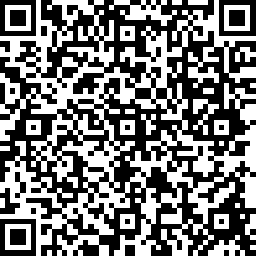
Noncesense Research Lab
We build analyses and tools to study blockchain systems from an empirical data science perspective.
Decentralized consensus systems produce large amounts of canon data - block headers, miner-reported timestamps, nonces, transaction data - complemented by even larger amounts of ephemeral metadata - propagation pathways, receipt timestamps, alternative histories. We seek the signal in the noise: the anomalies, the edge cases, the subtle temporal and heuristic signatures. We curate a unique dataset that enables endless new types of analyses. Our work is shared freely. Analyses and research have covered Monero, Loki, Zcash, and other privacy coins.
Join Us
Research Foci
Archival Network
The Noncesense Archival Network (formerly known as the Monero Archival Project) runs blockchain daemons with custom software extensions that provide standard public blockchain service with the extra capability to capture orphaned blocks, node-centric metadata, and other usually discarded phenomena. Our nodes are deployed globally to capture a broader view of the network and enable representative analyses.
We are currently observing the Monero and Loki blockchains. Contact us if you are interested in expansion.
Mining Phenomena
Analyses of alternative chains and reorganization events, combined with node receipt timestamp metadata, enables detection of various mining phenomena. For example, we observed probable selfish/stubborn mining on the Monero blockchain, and curious Merlin blocks with timestamps preceding their parent.
Nonces
For a supposedly useless number, nonces contain a surprising degree of narrative. Noncesense Research Lab revealed signatures of multiple unique nonce search strategies being used in current mining operations for Monero, Loki, and Aeon. On multiple occasions, nonce trends have been connected with specialized mining equipment (ASICs).
Protocol Improvements
We discovered weaknesses in CryptoNote's dynamic block size algorithm (Big Bang Attack) and are exploring fresh approaches for a long-term solution. We also provide data to inform consensus rules to eliminate non-fungible transactions.
Network Topology
The peer-to-peer networks enabling decentralized consensus systems are complex organisms whose topology, connectivity, and latency significantly impact message propagation times and routes. The study of node variability and volatility characteristics over multiple timescales can inform connection best practices, such as active defensive measures.
Literature
Our Projects
- [Monero Konferenco 2019] Visualizing Monero: a figure is worth a thousand logs
- Utter “Noncesense” — a statistical study of nonce value distribution on the Monero blockchain
- Big Bang Attack: Jupyter notebook
- Zcash turnstile denomination: Jupyter notebook
- Loki analysis: Jupyter notebook
- Opportunistic investigation of Monero miners during April 2018 network update
Others
- An Empirical Analysis of Traceability in the Monero Blockchain and Response from the Monero community
- New kids on the block: an analysis of modern blockchains
- Digging into Browser-based Crypto Mining
- Majority is not Enough: Bitcoin Mining is Vulnerable
- Stubborn Mining: Generalizing Selfish Mining and Combining with an Eclipse Attack
Donations
Noncesense Infrastructure
Noncesense Research Lab is a not-for-profit ad hoc collective of volunteers producing free and open-source software (FOSS) tools and analyses for general public use. Our infrastructure costs are currently supported out-of-pocket by individual contributors who would greatly appreciate additional support in bearing these expenses.
Address
Donations to help keep the lights on can be sent to:
48GtemxMdbdaSvjCqWA4sJY3L4QUwEpUs2Rka5Rpu8yz9Sg5
wpjbHsBSUviz44prcgiPXpHxeaFjHYCq824VjLtM19HjWGv
View key:
e05d5d432b84acd628d5faf182911883
15cd71ae0f9beef96c6a73667f4ba104
Contributors
- Brandon Goodell, Ph.D. (Surae Noether)
- Chr0n0
- Gingeropolous
- Mitchell Krawiec-Thayer, Ph.D. (Isthmus)
- Nathan Neff Mallon, Ph.D.
- Neptune Research
- Sarang Noether
- SerHack
- Xiphon
Thanks to JetBrains for the free open source license package to enable our research and development.
Secure Contact
hello@noncesense.org
-----BEGIN PGP PUBLIC KEY BLOCK-----
Version: SKS 1.1.6
Comment: Hostname: pgp.mit.edu
mQENBFu4PRwBCACvLZgKkIkMdfEc6uXe0wjaGP+sfN9HQthNryju0JBCwnf+fycNirHlyK92
BUDXe1DN/3YzZkLEym1G3P2SWURYi9iCKFziXjOYOWjtklJO71LRqP5jWw+2p5rexbT9Eruz
MTFNudvtejV3d8JywtE99QerKvPhqc2NTMpZb0/nrHK3ZdknG7ledJ9KjEMGtpxhkMNQNwip
TKtLny9U0Q4V8VzQs5bZnxUe3ni7SEOTS/ZJXDoWpbmU1CDPI1Nz0PaMZwrvTtKeS8jhFU5C
JcG2JP0BJKp4CywIV1fG0qeE44bGS182Kjs8+BlEmVqRzvm1tUga9eTxynUmP4tbiWQ/ABEB
AAG0QE5vbmNlc2Vuc2UgUmVzZWFyY2ggTGFiIDxub25jZXNlbnNlLXJlc2VhcmNoLWxhYkBw
cm90b25tYWlsLmNvbT6JAU0EEwEKADgWIQRLucDzM2TYI5gLoelCB4/jDfULWAUCW7g9HAIb
AwULCQgHAgYVCgkICwIEFgIDAQIeAQIXgAAKCRBCB4/jDfULWNNiB/is6xVWTAi30jQQQmyI
rinBkg+NcbfWM/6uH0VeKXjR8h2PbjokSRNZ7/pwcFDxv/ONzWf2beo4/XJGEKQyixmB5aTN
x6Za9NgzfiuaIckOmlcFi5Zmh8Az49FuyCqp1WEOj8BJVw+OCoCEbeZBnseRMpwr+k4GrPjJ
VwMsCsE3gRq7Piu31Gzt3+FsSLmzZI56SF85v4BDY5X8RmazBF1rLTQk3+yHvDo8ZFQoEQJy
5TXUFCojryamzYL4P1kXmrPvM5xhl4ylD8ugRHjwbnXGS/9C0Gh2gz/57/c6a7tWZn4+1cXW
St799Oo9dzZZDApDAXXzdWZ/g0+3S90Ww6+5AQ0EW7g9HAEIALEGaXuCvC/NrDEh4PpVUeM1
2cWS3e9B9hcZuxIW/UEHBVQeb79FB1rpzK1XfbjJrqF6NdzIIW2jIZbD3B8qsAvz0BwI6ULm
dDcF+hRlWTmmWNhDDsGTKYzMJ9VjGl2z4Z4AQcQjxoWwtv7pcROsyBuD39VFWvvFy9ZYznlR
A03ERJtFahLYFRBfHH4Wyrs7LZMriuJQ7sq7qn8pXozcqN97+OGBRtb2qdK7b5rjCi48IBbG
1P8Fvp+kuzJM4xNFfXAu3aC3nCF7T6t4iicndYGn0MHRO+BcGnayWBIv06NcvPLODgOynjoG
+eXmfHsRm8xpHkT78aDXSGhT/8dM3MUAEQEAAYkBNgQYAQoAIBYhBEu5wPMzZNgjmAuh6UIH
j+MN9QtYBQJbuD0cAhsMAAoJEEIHj+MN9QtY1OEH/iEjFkSlLiv7KKvBz5kCLMTg85FaR6H9
QVKKHkpmzlX7z8/p3Z4fDCtiY6OzJIXiQKkBOZU7CIe3IwG3ewm4ByBJD9ia2Lx7HSRRYGUy
OSk9HrvAKTnemED8X/Jik6kZJJv6S6Z/QYJZwLWQ8v9ZXGewdk6ibJc4c//O2W4wq7Wi+Crp
FhgEr0IzlPh48AJFzJ3jH9VfBOlBja4vkNqmgkkS4RGtuL7bZsnTdd4fT8zuppI/8eym6zvc
dY0RRhFQAtbOOA1b06/qyFOFbbMPUKqIo3p43a27ImIq1gRz98wvyuNhS7BWtapGyaNizQQe
TpiJk8x1dt5H7SwgPIHFD5Q==+9Jj
-----END PGP PUBLIC KEY BLOCK-----